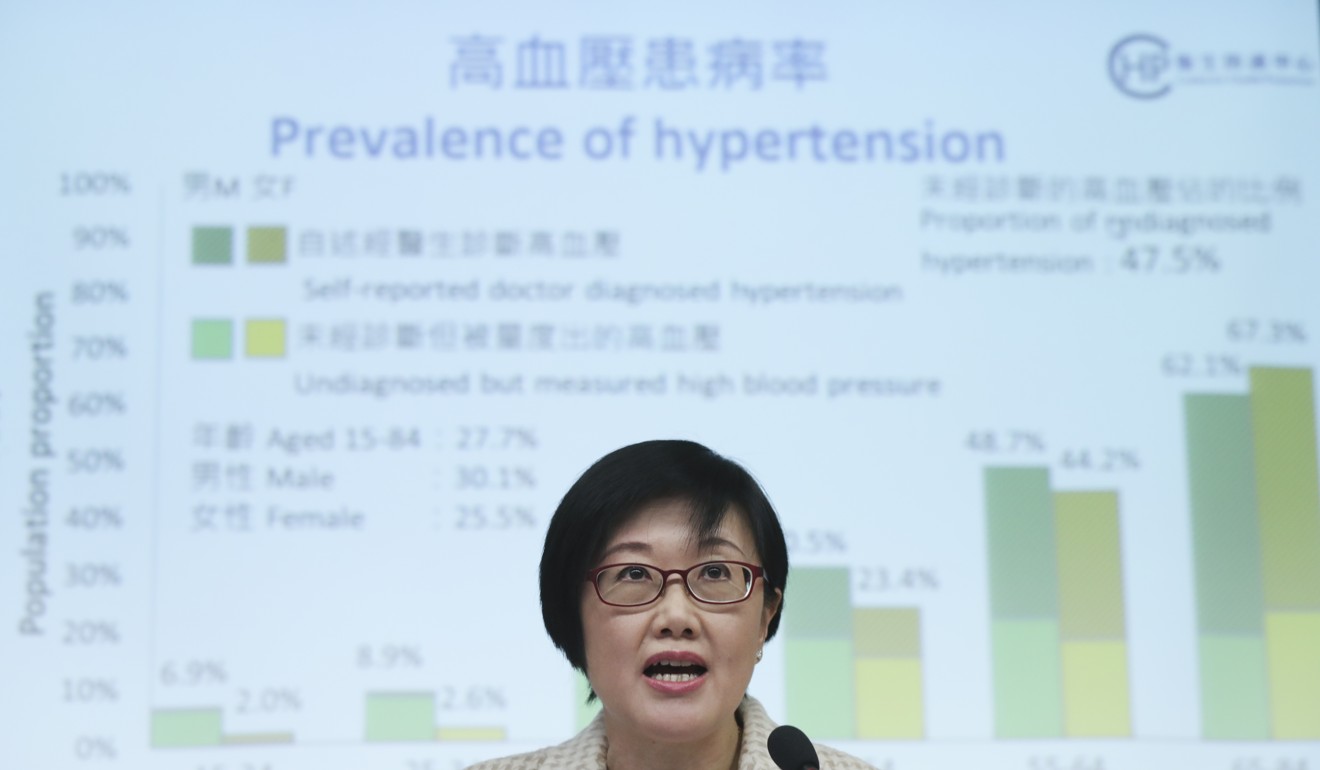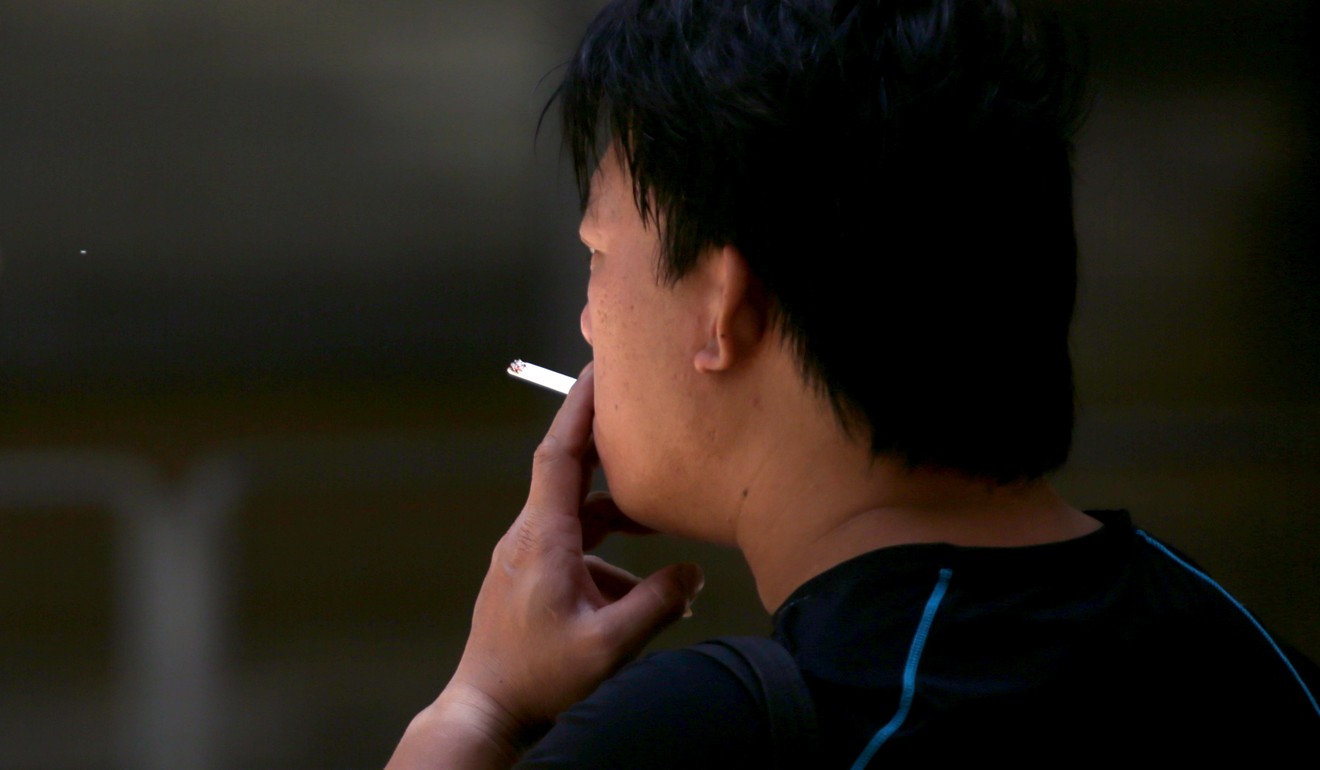
Relax, our health director is being a tad alarmist when it comes to our waistlines … and shiraz
The lecture we got from our health director this week just doesn’t add up

Maybe I am simply grumpy this week. Maybe I am just not in the mood to be lectured at. But our Department of Health’s alarms this week about the declining health of Hong Kong people struck a raw chord.
We all know the message. As Hong Kong’s director of health Constance Chan Hon-yee sternly alerted us: “By having a healthier diet, increasing physical activity, and not smoking and drinking, about 80 per cent of heart disease, stroke and Type 2 diabetes cases, and 40 per cent of cases of cancer, could be prevented.”
But the mix of a hectoring tone, a dubious use of statistics, and a clear attempt to blind and intimidate us with science – do we really need to know they used the Framingham risk model to predict the risk of a heart attack? – made me want to rebel.
After all, instead of staying at home all day, venturing out onto the street to go to work hugely increases the danger of being involved in a traffic accident.
And taking an air journey greatly increases the danger of death by air crash, or – more insidiously – suffering from deep vein thrombosis. Statistically speaking, the longer we live, the greater chance of something happening that will kill us. All true, all important, but what to do?
To be fair, the Department of Health points to some worrying developments. Its two-year “Population Health Survey”, completed in August last year and covering 12,000 people (why has it taken 14 months for results to be released?) claims to show that 50 per cent of Hong Kong people aged over 15 are overweight or obese – up from 38 per cent when the survey was last conducted in 2003 to 2004.
It said that 86 per cent of people eat more salt than the World Health Organization recommends, and that 94 per cent of us don’t eat enough fruit and vegetables. It said that drinking, smoking and a sedentary lifestyle are common.

While the South China Morning Post described the findings as “a damning picture of dietary habits in the city”, my own response was more muted. After all, it was not talking about a citywide opioid consumption crisis that was killing hundreds of thousands, or an HIV crisis arising from widespread use of unsafe sex practices, or schools living in fear of when a crazy guy with an automatic weapon will next wreak havoc through a classroom full of school-kids. Challenges such as these truly are scary. Luckily, we don’t suffer them here. Instead, our Department of Health is hectoring me to worry about salt and failing to do my daily quota of 10,000 steps.
Don’t get me wrong: poor diets and not enough exercise are bad for us. Every parent is right to worry that our kids eat less McDonald’s, KFC and sugary drinks. But I find some of the Health Department’s survey claims hard to swallow.
Take the obesity numbers. If it is true that 29.9 per cent of Hong Kong people are technically obese (using the World Health Organization measure, that means having a body mass index of 25 or above), then according to WHO data, that puts us among the four or five most obese populations in the world – behind the US, Mexico and New Zealand, but ahead of Australia, Canada and the UK.
Forgive me, but I find that claim unbelievable. You only have to spend a day walking the streets of Vancouver, or London or Sydney to see with your own eyes that obesity is a significantly larger problem there than in Hong Kong. I don’t want to belittle the challenge we face, but either the WHO or our own Department of Health are indulging in a little “fake maths”. Unfortunately, because Hong Kong is not a country, our data can’t be directly compared because it is not arrayed alongside other countries in the WTO figures.

I feel particularly prickly over our health director’s alarm about alcohol consumption – not least, of course, because of my own weakness for this particular vice. Her complaint is not that we have a big alcohol abuse problem, but that the number of people who drink alcohol in any form has risen from 33 per cent of the population in 2003 to 61 per cent in 2015.
I can agree with her that alcohol abuse and “binge drinking” constitute major social and health risks, but she is not talking about this. She is talking merely about touching alcohol: “As it is evident that alcohol produces more harm than any potential benefits, non-drinkers are advised not to start drinking, while drinkers should gradually decrease their drinking to reduce harm. The WHO has never recommended alcohol drinking for the sake of improving health.”
As any of us who read the lifestyle pages of the Post will know, the debate over the benefits of red wine – and in particular the ingredient resveratrol – is a lively one. Perhaps predictably the Milan-based University of Campobasso has produced lots of papers to claim that red wine, and the Mediterranean diet, are good for us. Beer has lots of important B vitamins, and Guinness in particular is a rich source of iron. Doctors used to prescribe it to my anaemic grandmother.
As the Harvard School of Public Health notes on its website, alcohol is “both a tonic and a poison – the difference lies mainly in the dose.” They note that the active ingredient in alcohol – ethanol – blocks absorption of folate (the B vitamins), and has been associated with some cancers, but at the same time appears greatly to reduce the risk of heart attacks.
Alcohol is also twice as fattening as sugary soft drinks – a sobering thought for someone who hates sugary drinks. Most of the harm done by alcohol occurs when someone who has been drinking gets behind the wheel of a car to drive home. All awful, but not deserving of the simplistic dismissal of our Director of Health.
I am the first to confess that I am biased here, because I like nothing better than to relax at the end of a long stressful day over a glass of red wine. I suppose I just have to be thankful that our Department of Health has nothing worse to worry about than salt, exercise regimes, and my evening glass of shiraz.
David Dodwell researches and writes about global, regional and Hong Kong challenges from a Hong Kong point of view